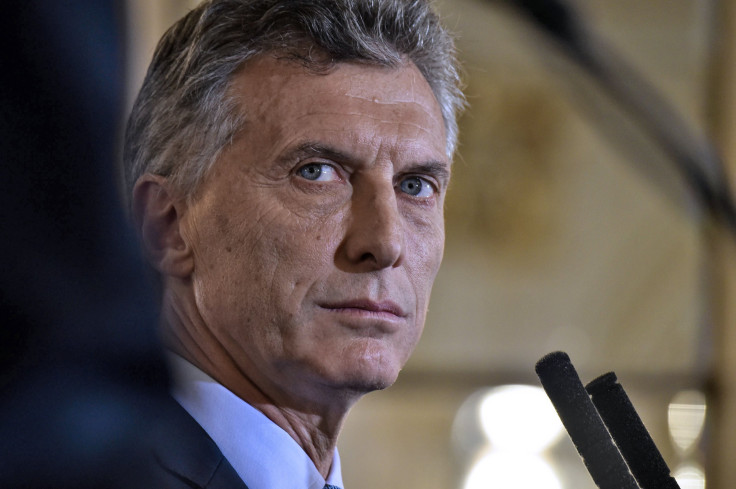Argentina Strike Paralyzes Economy Ahead Of October Elections

Argentina faces a series of economic strikes and political demonstrations as the presidential election looms in October.
Nationwide strikes protesting austerity measures under President Mauricio Macri grounded flights Wednesday and stopped work at key grain ports across the country, Reuters reported.
The CGT trade union is demanding that the government implement salary increases that could match the high level of inflation, as prices have increased over 50 percent since last year. Protests will also take place to protest the government's fiscal cuts, which have resulted in job losses.
President Mauricio Macri, who was elected in 2015 and is a staunch proponent of the free market economy, has had to pursue structural reform as a result of a financing deal that Argentina made with the International Monetary Fund. Macri was the first president to not follow the Peronist political ideology, a populist set of policies that united the right and left that were introduced by former Argentinean president Juan Peron.
The discontent surrounding his government's austerity measures is proving to be a gift for his political opponents, who hope to take the presidency from him when elections take place in October.
Presidential candidate and ex-minister Alberto Fernandez is currently ahead of Macri in the polls, largely due to the country's economic crisis.
Cristina Fernandez de Kirchner, Argentina's president from 2007 to 2015, has decided to run for vice president on the Fernandez ticket despite corruption allegations and suspicions that she covered up Iran's role in a terrorist bombing of a Jewish community center in Buenos Aires.
© Copyright IBTimes 2024. All rights reserved.





















